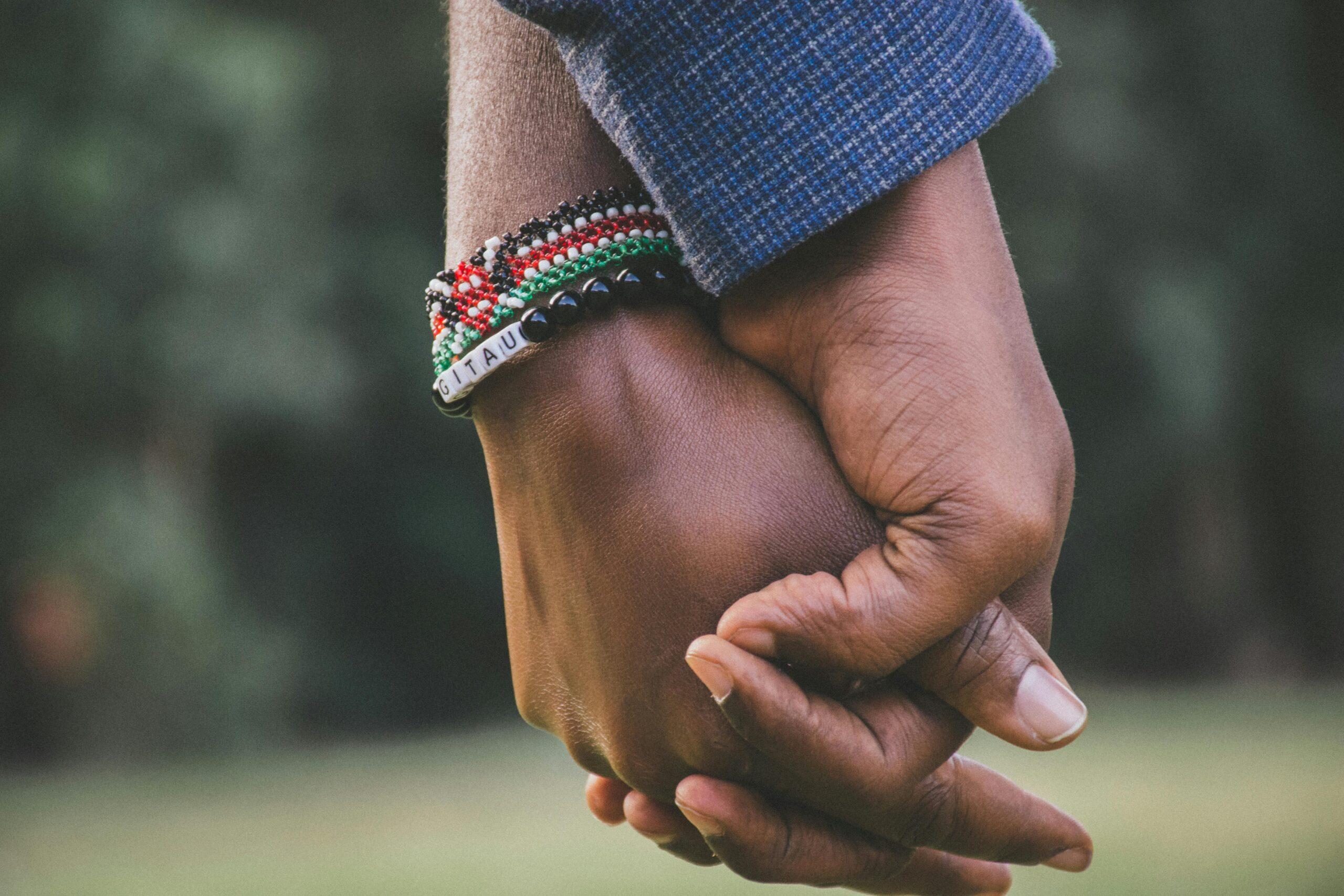Please leave your contact information and we will contact you as soon as possible.


Childhood molestation is one of the most deeply personal and traumatic experiences a survivor can endure. The impact of such abuse can reverberate through a person’s life, affecting emotional well-being and overall health. For survivors, seeking justice through the legal system can feel daunting.
Understanding the process, including potential outcomes like settlements, can be an important step toward reclaiming control. While it is impossible to predict exact settlement amounts, survivors can benefit from knowing the factors that influence compensation, how cases progress, and the ways an experienced attorney can provide support.
Key Takeaways
- Every case is different, and settlements reflect the individual circumstances, severity of harm, and legal complexities involved.
- Although specific settlement figures cannot be predicted, certain factors commonly play a role in determining outcomes in childhood molestation cases.
- Seeking an attorney early can make a significant difference. Even if survivors are unsure about filing a claim, an early consultation can clarify legal rights, help preserve evidence and witness testimony, explain the potential impact of statutes of limitations, and provide guidance on emotional support and resources.
Why Settlement Amounts Vary in Childhood Molestation Cases
There is no single “average settlement” for childhood molestation cases. Unlike personal injury cases that might rely on medical bills or lost wages, these cases involve deeply personal trauma that is unique to each survivor. Every case is different, and settlements reflect the individual circumstances, severity of harm, and legal complexities involved.
Settlement amounts are influenced by a combination of several factors. While some cases resolve through negotiation, others proceed to trial. Each path can yield different results, and survivors should understand that legal compensation is never guaranteed.
Instead, settlements aim to acknowledge harm, support recovery, and hold perpetrators or institutions accountable.

Key Factors that Influence Compensation
Although specific settlement figures cannot be predicted, certain factors commonly play a role in determining outcomes in childhood molestation cases:
Severity and Impact of the Abuse
The nature and severity of the abuse are primary factors in evaluating compensation. Cases involving repeated abuse, extreme physical harm, or long-term psychological effects may be assessed differently from cases with less documented impact. Courts and insurers consider the emotional and psychological trauma endured, as well as the presence of lasting mental health conditions (such as PTSD, anxiety, or depression) and the degree of physical injury or medical treatment required
Unlike personal injury settlements, where non-compensatory damages may be considered secondary to compensatory damages, molestation settlements focus on emotional and psychological trauma as a primary settlement factor.
Age of the Survivor
The age at which the abuse occurred can affect how the case is evaluated. Abuse during early childhood often carries profound developmental impacts, while abuse in later childhood or adolescence may present different emotional and psychological consequences. Attorneys carefully consider how the survivor’s age at the time of abuse factors into long-term harm and potential recovery needs.
Identity of the Defendant
The type of defendant, whether an individual, an organization, or an institution, also influences settlements. Cases against institutions such as schools or churches may involve complex legal and financial considerations, including liability policies and organizational practices. Some factors include institutional responsibility for supervision and prevention, policies or prior incidents indicating awareness of abuse, and resources available for settlement negotiations
These institutions have a responsibility to hold perpetrators accountable and to ensure measures are in place to keep people safe.
Availability of Evidence and Witness Testimony
The presence of evidence can greatly influence the strength of a case. While sexual abuse cases often rely on survivor testimony, additional documentation or witness statements can be pivotal. Evidence may include medical or psychological records, journals or personal notes, testimonies from friends, family, or other witnesses, and institutional records, such as personnel files or internal reports
The clearer and more corroborated the evidence, the stronger the foundation for negotiating a settlement. Although it may be hard for survivors to report abuse, the sooner it is reported, the better preserved the evidence will be.
Statutes of Limitations and State Laws
State laws can affect eligibility and timing for filing a lawsuit. Many states have statutes of limitations that restrict when survivors can bring claims. Some states have enacted special provisions to extend or remove these limitations for childhood sexual abuse.
Understanding these laws is important for protecting legal rights and ensuring a survivor’s case is heard.

Settlement vs. Trial
Whether a case settles or goes to trial can influence compensation outcomes. Settlements often allow survivors to avoid the emotional toll of a courtroom and can provide a resolution more quickly. Trials, on the other hand, involve public proceedings and a jury or judge deciding the outcome.
Both options come with potential benefits and challenges, and experienced attorneys can help survivors weigh the best course of action.
Jurisdictional Differences
Courts in different states or regions may award damages differently, reflecting jurisdictional trends in personal injury and sexual abuse cases. Understanding local legal precedents and typical approaches to compensation is an important part of legal strategy.
Types of Damages Considered in Settlements
When pursuing a settlement, cases may include various types of damages intended to acknowledge harm and support recovery:
- Compensatory damages. An award for compensatory damages covers tangible losses, such as therapy or medical treatment, as well as emotional distress.
- Punitive damages. Punitive damages are designed to punish particularly egregious behavior, especially in cases involving institutional negligence.
- Future care costs. If a childhood molestation left a survivor with long-term mental health needs, ongoing therapy or medical expenses may be considered.
- Loss of enjoyment of life. This accounts for how abuse has affected overall quality of life, relationships, or career potential.
Every case weighs these damages differently, based on the survivor’s unique experience and the legal framework of the jurisdiction.
Examples of High-Profile Abuse Settlements
High-profile cases can offer insight into how settlements may vary. Still, it is important to remember that these cases are not benchmarks for individual claims. They primarily illustrate the range of outcomes and the legal mechanisms at play.
Boy Scouts of America
The Boy Scouts of America faced thousands of abuse claims over decades, resulting in multi-million-dollar settlement funds. These settlements were influenced by the scale of abuse, historical institutional practices, and legal negotiations with a large number of claimants.
Catholic Church Settlements
The Catholic Church has also been involved in numerous abuse settlements with survivors worldwide. Factors influencing these settlements included institutional knowledge of abuse, the severity of individual cases, and the Church’s willingness to resolve claims outside of court.
While these examples demonstrate that settlements can be substantial, each case is unique. Settlement amounts are determined case by case, based on the survivor’s specific circumstances, evidence, and legal context.

Common Legal Hurdles in Childhood Molestation Cases
Pursuing a lawsuit can involve significant legal and procedural challenges, including:
- Delayed reporting. Many survivors do not come forward until years later, complicating evidence collection. For this reason, it is important to report abuse as soon as possible.
- The Defendant’s defenses. Alleged perpetrators or institutions may contest liability, dispute facts, or cite statutes of limitations.
- Complex litigation. Cases involving multiple survivors or large institutions may require coordination with other legal teams and navigating bankruptcy or settlement trusts.
Understanding these hurdles helps survivors set realistic expectations and work strategically with their attorney.
Emotional and Psychological Considerations
Childhood sexual abuse can have lifelong emotional effects, including anxiety, depression, PTSD, and difficulty maintaining relationships. Legal proceedings may trigger painful memories, making emotional support a critical part of the process. Many survivors benefit from:
- Therapy or counseling. Both individual and group therapy may be beneficial, and trauma-focused therapy can also support healing.
- Support groups. Connecting with others who have had similar experiences can reduce isolation.
- Family support. Trusted family members or friends can provide guidance and reassurance throughout the legal process.
Attorneys often coordinate with these support networks, helping survivors balance legal advocacy with emotional care.
How We Handle Institutional Cases
Cases against schools, religious organizations, or youth programs often involve a hierarchy of fault. Institutions may have multiple legal teams, insurance policies, and internal protocols that affect negotiations. In these situations, attorneys work to:
- Identify patterns of prior abuse or negligence
- Review institutional policies and prior complaints
- Advocate for survivors while maintaining confidentiality
Institutional cases can be challenging, but they also underscore the importance of holding organizations accountable for their role in protecting children.
The Importance of Early Legal Consultation
Seeking an attorney early can make a significant difference. Even if survivors are unsure about filing a claim, an early consultation can clarify legal rights, help preserve evidence and witness testimony, explain the potential impact of statutes of limitations, and provide guidance on emotional support and resources.
Early legal support helps survivors feel informed, supported, and empowered to make the best decisions for their case and well-being. A reputable sexual abuse attorney will not pressure a survivor to make any decisions, but will give them clear information about how to proceed should they choose to do so.
How Attorneys Support Survivors Through the Process
Working through a childhood molestation lawsuit can be difficult and emotionally taxing. An experienced attorney provides guidance and advocacy at every stage, helping survivors understand their rights and the options available.
Legal Strategy and Case Evaluation
Attorneys can evaluate the specifics of a survivor’s experience and determine the best path forward. This includes assessing potential defendants, available evidence, applicable laws and statutes of limitations, and realistic outcomes based on similar cases
Negotiating Settlements
When pursuing a settlement, attorneys advocate for survivors by negotiating with opposing counsel or insurance providers. This process involves:
- Presenting evidence of harm and ongoing impact
- Accounting for emotional, physical, and psychological damages
- Ensuring survivors’ voices are central in decision-making
Trial Preparation and Representation
If a case proceeds to trial, attorneys provide comprehensive representation, including preparing witnesses and supporting survivors through testimony and filing motions, and managing court deadlines. They can also present evidence to the court in a compelling and professional manner
Emotional Support and Resource Guidance
Beyond legal advocacy, attorneys can connect survivors with counseling, support groups, and other resources, helping them navigate the emotional impact of the process. Legal action can be retraumatizing, so having a supportive attorney is beneficial for maintaining well-being throughout.

Supporting Survivors Through the Legal and Healing Process
Pursuing a childhood molestation case involves understanding potential settlements and learning how to support survivors through both the legal and emotional journey. Each step of the process presents unique challenges, and survivors benefit from having a trusted team of professionals by their side.
Building a Strong Case
A primary component of any legal strategy is building a strong, evidence-based case. This often requires careful documentation of past experiences and current impacts. Survivors may work with attorneys to gather medical and psychological records, personal journals, school reports, or correspondence that help establish the scope of the abuse and its long-term effects.
Witness statements from family, friends, or other individuals who may have observed concerning behavior can also be important. Attorneys guide survivors on how to preserve evidence while maintaining confidentiality and safety.
Understanding Legal Rights
Many survivors are unaware of their rights or the specific avenues available for seeking justice. Attorneys help clarify how laws in their state apply, including statutes of limitations, the types of damages they may pursue, and the roles of different defendants, whether individuals or institutions. This guidance ensures survivors can make informed decisions and understand the potential benefits and challenges of different legal options, including negotiation, mediation, or trial.
Emotional and Psychological Support
The legal process often intersects with intense emotional work. Survivors may relive trauma when recounting their experiences, facing depositions, or participating in court proceedings. Engaging with therapists, support groups, or trauma-informed counselors can provide important tools for coping with stress and anxiety.
Attorneys often collaborate with these professionals to ensure that legal actions do not retraumatize the survivor and that emotional support is consistently available.
The Role of Advocacy and Community
Survivor advocacy groups, community organizations, and networks of peers who have had similar experiences can provide critical validation, encouragement, and information. These networks often help survivors navigate legal processes, share practical tips, and reduce feelings of isolation. Being part of a supportive community can strengthen resilience and empower survivors to pursue justice while also prioritizing their personal well-being.
Taking Action at Your Own Pace
It is important for survivors to remember that there is no right or wrong timeline for pursuing a case. Some may choose to wait until they feel emotionally prepared; others may act as soon as they are ready. Consulting with an experienced attorney early, even if a survivor is not yet ready to file a claim, can help preserve legal options and provide a sense of control over the process.
Legal guidance, combined with emotional support, allows survivors to approach each decision with confidence and care.
Taking the Next Step
For survivors considering a childhood molestation lawsuit, reaching out to an experienced attorney is an important first step. Confidential consultations allow survivors to discuss their experiences, understand legal options, and receive compassionate guidance without obligation.
If you or a loved one is a survivor of childhood sexual abuse, Edwards Henderson is here to listen, support, and help you along your legal journey. Contact us today to have your case reviewed. Every case is unique, and our team is committed to ensuring your rights are protected and your voice is heard.
Listen To An Excerpt
- 1 Key Takeaways
- 2 Why Settlement Amounts Vary in Childhood Molestation Cases
- 3 Key Factors that Influence Compensation
- 4 Types of Damages Considered in Settlements
- 5 Examples of High-Profile Abuse Settlements
- 6 Common Legal Hurdles in Childhood Molestation Cases
- 7 Emotional and Psychological Considerations
- 8 How We Handle Institutional Cases
- 9 The Importance of Early Legal Consultation
- 10 How Attorneys Support Survivors Through the Process
- 11 Supporting Survivors Through the Legal and Healing Process
- 12 Taking the Next Step
Please leave your contact Information and we will contact you as soon as possoble.
-
Does the Epstein ‘Client List’ Exist? What the DOJ Memo Really Says
By Edwards Henderson October 3, 2025 -
Sexual Assault on Campus: Can You Sue Your School or Attacker?
By Edwards Henderson August 26, 2025 -
Can I Sue an Institution for Sexual Abuse? Know Your Legal Rights
By Edwards Henderson August 19, 2025 -
What Is Statutory Rape? | The Truth Parents and Survivors Need
By Edwards Henderson August 1, 2025 -
Sexual Assault vs Molestation | What Survivors Need to Know
By Edwards Henderson July 25, 2025 -
What Is Rape by Instrumentation? A Survivor’s Legal Guide to Justice
By Edwards Henderson July 8, 2025 -
P. Diddy Verdict | Acquitted on Sex Trafficking Charges
By Edwards Henderson July 2, 2025 -
P. Diddy Case Updates | Survivors Speak Out
By Edwards Henderson June 24, 2025 -
How to Recover from Sexual Abuse | Transform Your Pain into Power
By Edwards Henderson May 20, 2025 -
How Long Do Date Rape Drugs Stay In Your System?
By Edwards Henderson May 13, 2025 -
What Is a Rape Kit?
By Edwards Henderson March 17, 2025 -
Sexually Abused by a Teacher: Your Pain Matters and so Does Your Justice
By Edwards Henderson March 7, 2025 -
What Is Aggravated Sexual Abuse?
By Edwards Henderson February 28, 2025 -
Are Young Teens More Likely to Be Sex Trafficked Online?
By Edwards Henderson February 21, 2025 -
What Is the Difference Between Rape and Molestation?
By Edwards Henderson January 14, 2025 -
Child Grooming: Identifying Child Predator Warning Signs
By Edwards Henderson January 11, 2025 -
P Diddy Sex Trafficking | Allegations + Tips For Survivors
By Edwards Henderson December 18, 2024 -
What Are Rape Shield Laws?
By Edwards Henderson December 17, 2024 -
Can I Be Sued for Defamation for Accusing Someone of a Sex Crime?
By Edwards Henderson December 13, 2024 -
Therapist Sexual Abuse
By Edwards Henderson December 10, 2024 -
Sexual Abuse in Sports
By Edwards Henderson December 4, 2024 -
Civil Sexual Assault Lawsuit: What to Expect?
By Edwards Henderson November 27, 2024 -
What is Sexual Battery?
By Edwards Henderson November 21, 2024 -
Filing a Lawsuit Against an Abuser’s Estate
By Edwards Henderson November 4, 2024 -
P Diddy Lawsuits | Shedding Light On Abuse Allegations
By Edwards Henderson October 24, 2024 -
Edwards Henderson Files Class Action Lawsuit Against Abercrombie & Fitch and Former CEO Michael S. Jeffries Over Sex Abuse and Trafficking Allegations
By Edwards Henderson September 27, 2024 -
How to Help a Rape Victim
By Edwards Henderson August 8, 2024 -
What Are Date Rape Drugs?
By Edwards Henderson August 2, 2024 -
Sexual Abuse and Sexual Assault Hotlines
By Edwards Henderson June 17, 2024 -
What is Sextortion?
By Edwards Henderson June 10, 2024 -
What Is the Freeze Response?
By Edwards Henderson June 6, 2024 -
Signs of Sexual Abuse in Teens
By Edwards Henderson June 6, 2024 -
Wilderness Therapy Abuse
By Edwards Henderson May 2, 2024 -
What is Inappropriate Touching By a Doctor?
By Edwards Henderson May 2, 2024 -
Bikram Yoga: Sexual Assault + Rape Allegations
By Edwards Henderson April 9, 2024 -
Repressed Sexual Abuse Signs
By Edwards Henderson April 9, 2024 -
What is Sexual Consent?
By Edwards Henderson April 4, 2024 -
What is Victim Blaming?
By Edwards Henderson April 4, 2024 -
I Was Abused By A Priest: What Are My Legal Options?
By Edwards Henderson November 30, 2023 -
Bill Cosby Sexual Assault: How the Lookback Window Has Helped Survivors
By Edwards Henderson October 19, 2023 -
Sexual Violence Against Racial and Ethnic Minorities
By Edwards Henderson October 4, 2023 -
Male Sexual Assault: Resources and Legal Information for Survivors
By Edwards Henderson September 23, 2023 -
How Does Breaking Code Silence Help Institutional Child Abuse Survivors?
By Edwards Henderson September 1, 2023 -
Date Rape Drug Symptoms
By Edwards Henderson August 3, 2023 -
Andrew Tate Human Trafficking
By Edwards Henderson August 3, 2023 -
Ghislaine Maxwell Sentenced to 20 Years in Prison for Role in Epstein Sex Trafficking Conspiracy
By Edwards Henderson June 27, 2023 -
Flashbacks of Sexual Abuse | How to Cope And Heal
By Edwards Henderson June 8, 2023 -
Was I Raped?
By Edwards Henderson February 7, 2023 -
Attorney Brad Edwards Featured in ‘Ghislaine Maxwell: Filthy Rich’
By Edwards Henderson November 29, 2022 -
PTSD Resources for Abuse Survivors
By Edwards Henderson November 23, 2022 -
LGBTQ Sexual Assault: Statistics, Legal Options and Resources
By Edwards Henderson November 21, 2022 -
The Troubled Teen Industry and Sexual Abuse
By Edwards Henderson November 8, 2022 -
Human Trafficking Lawsuits
By Edwards Henderson September 27, 2022 -
Recognizing Adult Symptoms of Childhood Sexual Abuse
By Edwards Henderson August 26, 2022 -
New York Adult Survivors Act: Frequently Asked Questions
By Edwards Henderson August 23, 2022 -
Sexual Abuse and Addiction: Unraveling a Complex Relationship
By Edwards Henderson August 19, 2022 -
Southern Baptist Convention Sexual Abuse Reckoning
By Edwards Henderson August 17, 2022 -
What is the Adult Survivors Act?
By Edwards Henderson August 3, 2022 -
Exploring the Link Between Sexual Abuse and Eating Disorders
By Edwards Henderson July 20, 2022 -
U.S. Merchant Marine Academy Cadets Allege Culture of Sexual Abuse
By Edwards Henderson June 17, 2022 -
Sexual Assault in Hospitals: How Common Is It?
By Edwards Henderson June 9, 2022 -
New York Adult Survivors Act Opens A Lookback Window For Expired Sexual Abuse Claims
By Edwards Henderson May 24, 2022 -
Child Sex Abuse: Warning Signs and How To Report It
By Edwards Henderson May 18, 2022 -
Hallandale Beach Abuser Arrested After Years of Sexual Assault
By Edwards Henderson May 17, 2022 -
Broward County Cheer Coach Arrested for Enticement of Minor
By Edwards Henderson May 6, 2022 -
What is Assembly Bill 218: The CA Child Victims Act?
By Shana Bosley April 8, 2022 -
Statute of Limitations and Look-Back Windows for Sexual Abuse Cases
By Shana Bosley April 8, 2022 -
Can You Proceed Anonymously in a Sexual Abuse Case?
By Shana Bosley April 8, 2022 -
Holding Businesses Liable for an Employee’s Sexual Misconduct
By Shana Bosley April 8, 2022 -
Am I Entitled to Compensation after Being Sexually Assaulted?
By Shana Bosley April 8, 2022 -
The History of the Epstein Victims’ Compensation Program
By Edwards Henderson March 7, 2022
-
$4.3 Million
Verdict on Behalf of Rape Victim
-
$71 Million
Verdict on Behalf of Rape Victim

